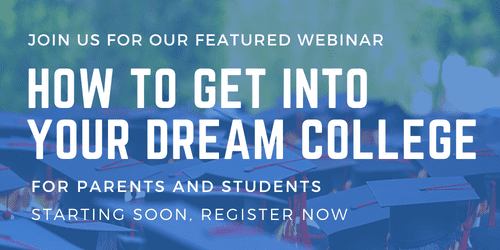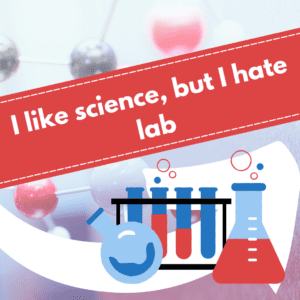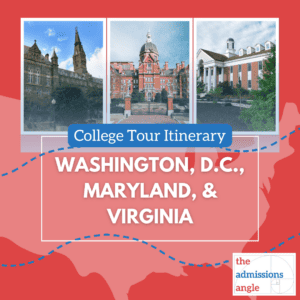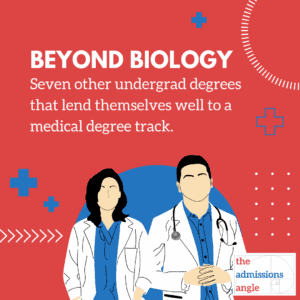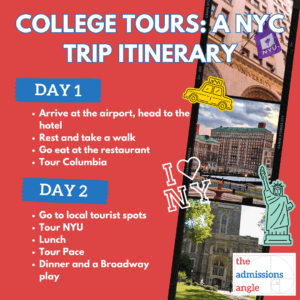
The College Essay Timeline
The majority of stress and work in the admissions process stems from the essay writing. These essays are a critical component of a student’s application, as it’s one of the only opportunities to inject personality into an application. Students should spend a lot of time crafting their essays and as as result, need to manage their time to be successful.

By ALEX LOVELESS
Every college applicant will have varying essay workloads, depending on their college list. Students with high aspirations for top colleges should be prepared to write A LOT of essays. Schools like Stanford require answers to 6 short answer questions (50 word limit), an extracurricular essay (150 words), and 3 short essay questions (250 word limit). Although they are all quite short, that’s 10 questions to answer in a thoughtful, efficient manner. And that’s just for one school. If you’re serious about getting into a school like Stanford, those essays will also have to be quite excellent. For less competitive schools, there might not even be any supplemental essays to write.
While Stanford is the exception to the rule – many top colleges will just require one or two longer essays – it doesn’t diminish the effort needed to effectively apply to these schools. As a result, it’s imperative that rising juniors get a head start on their college essay brainstorming, writing, and editing.
The timeline below is geared towards students with ambitious college lists. The workload has been well spaced out, but in the later months, I’d say it’s a little on the late side for getting certain things done. Overall, July and August are ideal months to get a big chunk of your essay work finished. The schedule is as follows:

April
Research colleges and narrow down your college list dramatically.
Although you don’t have to make final decisions for your college list yet, you want to have a number of schools that you’re stoked to apply to and will stay on your college list. The earlier you can accomplish this, the earlier you can start on the rest of the application work. Do online research, visit campuses if possible, check out schools on CampusReel, attend college fairs, talk to alumni, etc. This is about you figuring out where it is you can academically flourish.
May
Brainstorm and draft your first Common App personal statement essay.
While the Common App only requires one essay, we do suggest that you draft at least two different essays with different topics so that you have some options later on. Unused essays can easily be used for other essay prompts down the line. Most students are in the middle of AP exams throughout this month, so they usually don’t have time to do much more than this.
June
Edit your first essay into a final rough draft (before getting feedback from others).
In order to give an essay a proper chance in the editing process, it needs to be crafted to the vision that you have for it. Great essays ideas are oftentimes thrown away because the first version of an essay was executed poorly and readers are unable to even comprehend the message behind it. Before asking others to give feedback, really try to finalize the essay to the best of your ability.
Brainstorm and draft your second Common App personal statement essay.
Try to go a completely different direction with this essay. Different prompt, different organization, different anecdote and message. If the essay is too similar to the previous one, you probably won’t ever one of these drafts ,and it will be somewhat a waste of time.
(Optional) If you’re still not satisfied with either of your Common App essays, you can try for a third idea.
Just like it says, some students are still not satisfied by what they’ve come up with, but think they’re really close to finding the right topic. Remember, your main essay is the only essay that you put THIS much work into because of how important it is.
College Admissions Services
Schedule a Free Consultation
Meet with a mentor one-on-one via video chat to talk about your son/daughter’s admissions plan. Afterwards, receive a no-obligation Customized College Roadmap (CCR) with advice on courses, extracurricular activities, standardized tests, and Admissions Angle strategy.
July
Edit your second Common App essay to a final rough draft.
Like mentioned above, you should fully complete your essay idea before getting feedback.
Decide on schools to apply to for early admissions. Brainstorm/draft those supplemental essays.
This should be the first busy month for essay writing. The summer is the best time to get essay drafts done, and most students have this entire month off from school. If you can decide on which schools you’ll be applying to early, it’ll be easier to know how much work you have to finish before the Nov. 1st deadlines. The only thing holding applicants back from REALLY putting the pedal to the metal is the fact that many schools don’t release their updated essay prompts until August.
(Optional) Brainstorm and draft essays for the UC Applications
If you’re really hesitant to work on essays because official updated prompts for your schools haven’t come out yet, then working on the UC essays can be a safe alternative. The UCs rarely change the prompts and even if they did change them, the changes would probably be announced by now.
August
Get feedback on your two (or three) Common App personal statement essays, decide one which one to use, and make final edits.
This is a really important decision for your application. Your personal statement essay is the face of your application and one of the only ways to show your personality. Make sure to get feedback from not too many and not too few people. Too much feedback will give you a lot of contradicting opinions while too little feedback could miss some glaring problems if that person isn’t experienced in college essay writing. A good number of people to get feedback from is about three or four different people. These should be people who know you well and have experience with personal writing.
Finish rough drafts for your early admission supplemental essays.
All essay prompts should be released by this point, so there’s no need to hold back anymore. This should be the month that you get as much work done as possible. For any essays that you wrote with the incorrect prompt, don’t throw them away. They can oftentimes be used to address other, more flexible supplemental essay prompts later on.
Finalize your college list. Map out all essay prompts for UC applications and all regular decisions schools.
Before diving into the essay drafting, make sure to finalize your college list and find opportunities to reuse essays you’ve already written. You want to find any opportunity to reduce your workload and there’s no need to write new responses to similar essay prompts if you wrote a great response for another school. (Note: You shouldn’t reuse any type of “Why Us” essays for other schools. You can reuse the overall format, but never the details or reasons for wanting to attend a school)
(Optional) Reach out to professors/administrators at the school and department of your early schools with questions about the program you expect to apply to.
This is a great tool for demonstrating interest and learning details about your intended programs that you can’t find on the website. In addition, conversations with faculty at your early schools can give great tidbits that you can use for a “Why Us?” essay. I’ve even had students use an exchange of emails with a professor as a compelling argument for wanting to attend that school, arguing that the correspondence of the professor ensured the student that the school had the type of mentors they were looking for in their college experience.
September
Get feedback and finalize your supplemental essays for early schools.
Getting your early application essay work done this early helps you to space out all the regular decision application work later on. These essays are usually for some of your top choice schools, so make sure to spend a lot of time polishing these essays and getting feedback, similar to your Common App personal statement process. Many of these essays will also be reused for other prompts later on.
Brainstorm and draft all UC application essays.
UC application deadlines are at the end of November, so they should be your next priority if you haven’t worked on them already. There are eight prompts to choose from, and you pick four. It doesn’t matter too much which prompts you choose, so try to choose prompts that you can reuse other essays to answer. In particular, the Common App personal statement essay is something that the UC schools don’t see, so try to reuse it for one of these essays. The main challenge here will be to reduce the word count (from 650 words to 350 words).

October
Submit applications for early admissions.
First off, make sure to get your early admissions applications submitted. A majority of deadlines are Nov. 1st, but some are Oct 15th, so make sure to not miss those. To be safe, try to submit your applications a week or two ahead of the deadline.
Get feedback on UC application essays and finalize.
Make sure to get these done early so that you give yourself a lot of time to work on the remaining regular decision supplemental essays. If you chose your essay prompts correctly, hopefully you can use an essay or two from here for some of your remaining school essays.
Brainstorm and draft all supplemental essays for top priority/reach schools (about half your remaining list)
You definitely want to prioritize the remainder of your applications here. Your top priority schools should be worked on first so that you have more time to work on/perfect them. Even though you’ve JUST finished submitting your early applications and it can be easy to get complacent in that accomplishment – trust me I know it’s an accomplishment – you don’t want to procrastinate on your essay work here. If you have a long college list, you have a lot more work to do and you can easily fall victim to overconfidence. Procrastination + the unfounded belief that you’ll definitely get into Penn for Early Decision is a recipe for disaster. If you’re applying to all the Ivies, the two weeks in December after early results come out is not enough time to effectively work on your regular decision application essays.
November
Get feedback and finalize your first batch of regular decision essays.
It’s important to get a good chunk of regular decision essays done in November, otherwise December is going to be a mess. Students applying to a number of top 20 reach schools for regular decision will have the majority of their essay work ahead of them and not a lot of time to ensure they’re writing their best possible essays. Do. Not. Procrastinate. Here.
Brainstorm and draft all remaining supplemental essays.
Like I mentioned before, continue to look for opportunities to reuse drafts for other schools. You should be reaching critical mass around this time of having an essay draft for just about any prompt that a school will give you. You’ll just have to adjust word counts or the focus of the learning point a little bit.
Submit your UC applications
These applications are due Nov. 30th but try to get them submitted a week or two early. Remember, the UC applications are a separate system than the Common Application.
December
Finalize the rest of your regular decision essays
This is it: the home stretch of the admissions process, and it’s now or never to get those application essays done. Make sure to keep track of the specific deadlines for the schools you’re applying to and prioritize based on application deadlines. If you have a school that isn’t due until Feb 1st, like Michigan, then you should do those essays last and prioritize the essays for applications due Jan 1st.
If you’re getting any help from counselors or teachers for editing your essays, keep in mind that many of them will stop checking their emails once Christmas break starts. Make sure to get things into them ahead of time and be respectful of their time. If you didn’t get your drafts to them in due time to give feedback, don’t get upset if they tell you that they won’t sacrifice their vacation to help you. Again, plan ahead.
Submit the rest of your college applications
We recommend that you submit everything at least a week in advance. There are a lot of little things that can come up that you want to be able to keep track of. In particular, the earlier you submit your applications, the earlier you’ll get access to the schools’ application portals on their websites. Once you have access to this, you can double check and see if the school’s have received everything that’s required of you to submit. I can’t stress this enough.
Final Thoughts
The overall workload here is really dependent on your college list, so if your list isn’t as ambitious, some of the timelines above might not apply to you. The main point here is that getting a head start and planning your essay workload is essential to limiting how stressful the college application process needs to be. It’s already stressful enough as is.
Also, I know that procrastination and writing fatigue are real obstacles in this process. You guys aren’t essay robots able to churn out quality drafts on a strict schedule. This timeline wasn’t meant to be followed exactly. But that doesn’t mean that setting goals and putting pressure on yourself early on isn’t going to help you get the ball rolling. Trust me, a little work now will go a long way towards boosting your confidence and overall preparedness throughout this process.
One great way to keep yourself accountable in the essay drafting process is to work with a friend, a parent, a teacher, anyone who will expect you to send them drafts. If you ask your English teacher to help you with a personal statement draft and they agree to help, you’ll have some accountability in the quality of the draft and in the timeframe that you deliver that draft to them. Don’t go at this journey alone, especially in the editing process, and always ask for help.





